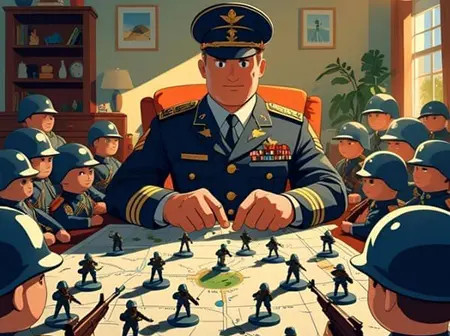In many cultures and family structures around the world, the role of the father is often described using powerful metaphors—one of the most resonant being the “Commander in Chief of the household.” While the title evokes images of authority and leadership, its true meaning goes far beyond control or dominance. At its core, this designation reflects a deeper responsibility: to lead, protect, guide, and serve one’s family with wisdom, strength, and integrity.
Just as a nation’s commander in chief is entrusted with safeguarding the nation’s interests, the father is often seen as the guiding force behind a family’s vision and values. His role is not just to issue orders but to make decisions that foster unity, well-being, and growth. A good commander doesn’t seek power for its own sake, but uses it to serve and uplift. In the same way, a father leads his home by example—modeling discipline, accountability, and love.
The image of the “commander in chief” also carries a strong association with protection. A father assumes the role of protector—both physically and emotionally. He works to create a safe environment where his family can thrive, often making personal sacrifices to ensure their needs are met. Whether it’s through earning a living, setting boundaries, or being present during tough times, the father’s commitment to his family’s security is unwavering.
In a world full of uncertainty, children and even spouses often look to the father for guidance. Just as a military leader must have a clear moral compass when making high-stakes decisions, so too must a father possess a strong sense of ethics and justice. By instilling principles such as honesty, respect, and perseverance, he lays down the moral foundation on which the household is built.
Leadership in the home is not about harshness or control. The best commanders lead with empathy and emotional intelligence—traits equally vital in fatherhood. A strong father balances authority with compassion, discipline with understanding. He listens, supports, encourages, and adapts. His strength is not in rigidity, but in resilience and emotional availability.
A father, like a commander, must have a vision—not only for his own life but for the direction of the family. He helps shape the aspirations of his children and supports their journey toward independence and self-fulfillment. He’s not just focused on the present moment, but is thinking long-term: about legacy, education, values, and the kind of future he wants to help build for the next generation.
While the metaphor of “commander in chief” might imply a singular authority, it’s important to recognize that strong leadership is most effective when it works in partnership. A wise father values the voice and partnership of his spouse or co-parent. Leadership in the home is not about hierarchy but harmony—each member playing their part to maintain balance and love in the household.
Calling the father the “Commander in Chief of the household” is not about asserting dominance—it’s about embracing a sacred duty. It’s a recognition of the immense influence, responsibility, and service that fatherhood entails. True leadership in the home comes not from control, but from character. And when a father leads with love, wisdom, and strength, the entire family benefits—flourishing under the guidance of a leader who truly puts them first.

Leave a Reply